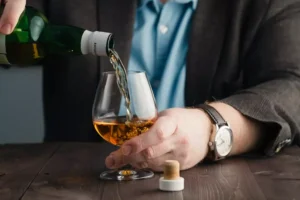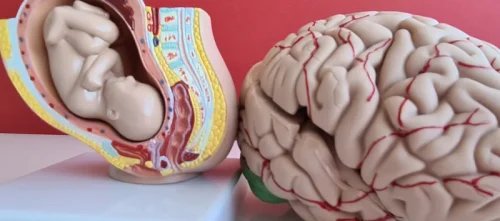PRODUCT Description
Of course, alcohol and sugar cravings can sometimes go hand in hand. If you find that it’s hard to control your drinking without resorting to sugar, there are new ways to limit drinking urges. Long-term, alcohol abuse disrupts your body’s ability to regulate your blood sugar. This is partially because alcohol can damage the pancreas, which controls blood sugar levels, and partially due to poor diet and malnutrition. Eating healthy foods provides your body with important nutrients it’s likely missing due to drinking. Besides eating healthy, it’s also best to avoid high-sugar products, such as highly processed foods.
Find Support in Addiction Recovery
According to Czerwony, the key features of sugar addiction are volume, frequency and feelings. Discover which do alcoholics crave sugar drugs can harm brain cells. From opioids to alcohol, uncover the truth about substance abuse and brain health.
How to Avoid Replacing Alcohol with Too Much Sugary Food
The pressure or tightness in the abdomen can feel anywhere from mildly uncomfortable to really painful. More simply, our brains begin to regulate themselves with alcohol. Without it, the brain makes chemical demands and requests for alcohol. Cues or triggers may differ from person to person.
Stimulants Increase Sugar Cravings
- Dopamine, a chemical messenger in the brain, plays a crucial role in how we perceive pleasure.
- This could lead to chronic gastritis as the alcohol continuously damages the stomach lining.
- Recently, it was the one gallon of milk a day or something.
- Discover the life-changing benefits of rehab centers in PA, your key to lasting recovery from addiction.
- So, if you have sugar on your mind constantly after quitting alcohol – don’t be too hard on yourself.
- An uncontrolled sugar habit not only potentially derails your sobriety efforts but can also lead to health issues like weight gain, diabetes, and heart disease.
The liver processes any alcohol a person consumes. The liver normally releases glycogen into the bloodstream, but drinking alcohol impedes this process. This can often cause blood sugar levels to drop.
Why Do You Crave Sugar When You Stop Drinking Alcohol?
An uncontrolled sugar habit not only potentially derails your sobriety efforts but can also lead to health issues like weight gain, diabetes, and heart disease. Adapting a healthy, balanced diet can help regulate your sugar intake, ensuring a more successful recovery. Moreover, starting your day with a glass or two of water can set a positive tone for your body’s hydration requirements. Ensuring you’re well hydrated before meals can also curb overeating and consequently, help manage sugar cravings. Shedding light on the science behind these intense sugar cravings after giving up alcohol, we find ourselves in the complex labyrinth of neuroscience.
In addition to the biological influences, psychological factors also contribute to the cravings for sugar among recovering alcoholics. People with AUD may turn to sugar as a coping mechanism to manage stress, regulate emotions, or fill the void left by alcohol [3]. When your blood sugar is low, it’s natural for your body to crave sweets to counteract it.
This is a survival mechanism your body employs in preparation for not being fed regularly or adequately. As a result, many people feel pressured to undereat or only eat certain types of foods. Not only does this take the enjoyment out of eating, but it’s https://ecosoberhouse.com/ an unhealthy practice that can set you up for disordered eating and malnutrition. A person who experiences alcohol cravings does not necessarily have alcohol use disorder. Instead, a habit loop of cues, behaviors, and rewards may be causing the cravings.
- And then also going on like, no sugar cleanses, or juice cleanses.
- People addicted to opiates often replace protein and fats with meals high in sugar and alcohol, which are low in essential nutrients and, therefore, are sources of empty calories.
- Over time, many people find their cravings easier to control and reduce in strength.
- Sugar cravings are the most intense about a week after the last drink.
A person may find that focusing on obtaining and eating sweet foods feels like an acceptable substitute for their previous addictive behaviors. They may even become obsessed with finding recipes and learning to bake or looking for multiple sources to purchase sweet foods from. Part of the reason for the ease with which many switch addictions has to do with the fact that addiction has a behavioral aspect to it. While ultimately a person with a substance use disorder focuses on chasing the high that drugs and alcohol provide, they also come to find comfort and familiarity in the addictive behaviors.
How To Overcome Sugar Cravings When In Recovery
Rather than giving in to the craving right when it strikes, wait it out. Drink water or tea to fill your stomach, and see if the desire for sugar lessens. Some people notice they overcome their cravings by not immediately “feeding” them. If the craving does persist, know that it’s OK to give in. Saying no to cocktails with friends and red wine with dinner are obvious and foreseen challenges, but battling a sudden new sugar craving may be less expected.
What are some dried fruit that’s good to, for someone that likes something sweet, like, me? I’m putting myself in that category. Connect with me for free sober coaching tips, updates + videos on YouTube, Instagram, Facebook, Pinterest and TikTok @hellosomedaysober. Naidoo is also a culinary instructor at The Cambridge School of Culinary Arts. She writes for Harvard Health and Psychology Today.
- - 574
- ! Без
- ! Без рубрики
- !Fortune tige
- "fc Seoul Vs Jeju United Match Prediction & Betting Ideas With Live Odds - 490
- "mostbet Az-90 Kazino Azerbaycan Lap Yüksək Bukmeyker Rəsmi Sayt - 878
- "mostbet En Vivo: Haz Tus Pronósticos Sobre Directo Y Disfruta De Su Buffering" - 786
- +btoct
- +novPU
- 1
- 1win
- 1Win AZ Casino
- 1Win Brasil
- 1win Brazil
- 1WIN Casino Brasil
- 1win India
- 1WIN Official In Russia
- 1win Turkiye
- 1win uzbekistan
- 1winRussia
- 1wins-moldova.mdro-md x
- 1x-bet.downloa
- 1xbet egypt
- 1xbet Russian
- 1xbet3
- 1xbet32
- 1xbet4
- 1xbet51
- 1xbet52
- 1xbet61
- 1xbet62
- 1xbet82
- 2
- 2024te-Yeni-Üye-Olmanın-Avantajları-Deneme-Bonusu-Veren-Casinoslar.html
- 20Bet Deutschland
- 212
- 222
- 22bet Schweiz
- 26
- 2nd level
- 3
- 3dinvesting.com
- 4
- 5
- 5trucks.ru 500
- 6
- 7 slots
- 7slots
- 7к-казино
- 8
- 9
- a16z generative ai
- a16z generative ai 1
- acad
- Accessories
- adaptationfestival.gr
- adm
- adobe generative ai 1
- adobe generative ai 2
- afyonsosyetepazari.com 1
- AI Chatbot News
- AI News
- aliexpres.com.ua - офіційний сайт Аліекспрес в Україні
- alizeyeniufuklar.com
- almaradio.gr
- amminex.net 2
- amnistiepdm.org - Official Website of Safe Casino Sites in South Korea
- anbhoth.ie
- ankaratarotfali.com 2
- antalyaerenhali.com 1
- antalyaerenhali.com 2
- anushkatrivedi.comen-bd x2
- Apex-Clover-Link-Slot-Oyna---Kazançlı-Çevrimler.html
- archpoints.gr
- Artificial intelligence
- Artificial intelligence (AI)
- asian brides
- augustent.com 1
- Ausländische Online Casinos Schweiz – siehe offizielle Website fanarbeit.ch
- auto-info.hr 2
- aviator-game-official.netlify.app 1
- aviatorSITESI_may
- axiomaltd.ru 1500
- Bahigo Schweiz
- ballybunionartsfestival.ie bCasino
- bambturkiye.com 1
- BankOnBet
- bashpirat.ru 2000
- batery.org.in3
- BC.GAME Casino Schweiz
- bedava-slot-siteleri.com 1500
- bedava-slot.com 1500
- bedpage
- behar.hr 2
- belanok.mk
- best-news
- besyohocam.com 2
- bet10
- bet10 casino
- bet10-casino
- bet442casino.co.uk - UK
- Betmgm Bonus Code Nyp1500dm Grants A 20% Deposit Match Or $1, 500 Initial Bet For Broncos-saints 'thursday Night Football' - 862
- Betonred Casino Schweiz
- betspecial.co.uk 2
- Betting Company Mostbet App Online Sports Betting - 111
- bh_aug
- bh_sep
- bhnov
- bhoct
- BHS-Links
- BHTopJun
- Big-Bass-Bonanza-Blaze-Oyun-İncelemesi.html
- Big-Bass-Bonanza-İkili-Kazanma-Stratejileri-ve-İpuçları.html
- Bigger-Bass-Bonanza-Oyna-Ücretsiz---Slots-Oyunu.html
- bilimufku.com 2000
- biznisakademija.hr
- biznisakademija.hr 2
- Bizzo Casino – Offizielle Website in der Schweiz – editori-sesi.ch
- Bizzo Casino Schweiz
- black-seo-links
- Blog
- Blog Lk
- bonanzasitesi_may
- Bonus-Veren-Casino-Oyunları-En-İyi-Seçenekler.html
- Bookkeeping
- Bookmaker Şirkəti Mostbet: Formal Mobil Versiya Icmalı - 336
- bootstrap-3.rucss.php 900
- borka.org.mk
- braintreerec.com2
- brunch-cafe.ru
- BT_Prod_aug
- bt_sep
- btbtnov
- BTTopJun
- Buon Ma Thuot Itinerary: Explore Buon Ma Thuot in 1,2,3, and 4 Days - 115
- Buon Ma Thuot Itinerary: Explore Buon Ma Thuot in 1,2,3, and 4 Days - 534
- cam-girls
- camp-hockey.ru 500
- campionsbb.com 2000
- cashwin casino schweiz
- casino
- casino en ligne fr
- Casino Mostbet Mostbet Kaszinó Értékelés Nagy Nyeremények És Könnyű Kifizetések Mostbet - 733
- casino onlina ca
- casino online ar
- casinò online it
- Casino Oyunları Giris Yukle Bonuslar - 3
- casino-bet10
- Casino-Oyunlar-ve-Slot-Stratejileri-Şansınızı-Artırmanın-Yolları.html
- casinogermanyforpoland
- casinos
- Casinozer Avis +350 + Fondamental Libéralisation Spins Offert 100% Gratuit - 146
- catcasino-mix
- catcasino4
- cc-women-hellas-virtual-events.gr
- ccasino
- cdradvocacy.org
- centralrest.ru 500
- cerkezkoyisilanlari.com 1500
- CH
- Chathub
- Chatib
- chiorc.gr
- CHjun
- christofilopoulou.gr
- chytayemotut.com.ua
- CIB
- ciroblazevic.hr
- Cities
- City COCO
- content2
- Coolzino Casino Schweiz
- creativeworkingplayground.com
- creativeworkingplayground.com 1000
- Cryptocurrency exchange
- Cryptocurrency News
- czbrandss
- Dede-Casino-Kumar-Oyunu-Gates-of-Olympus-Slot-ile-Eğlenceyi-Zirveye-Taşıyın.html
- Deneme-Bonusu-Veren-Siteler-Kazanç-Fırsatlarını-Keşfedin.html
- dirty-talk
- dkmarino.ru 2000
- dogakentkres.com 2
- drop sk, cz
- drugs
- dutchbikeshop.ie Casinoly
- EC
- Echat
- ecospace
- eda-52.ru 500
- edirectory.ie
- Education
- Efsane-Slot-Oyunlar-ve-En-İyi-Kazandırma-Zamanları.html
- Efsanevi-NetEnt-Slot-Oyunlarıyla-Heyecan-Dolu-Bir-Yolculuğa-Çıkın.html
- Efsanevi-Slotlar-Pragmatic-Play-İle-Şansınızı-Deneyin.html
- egt-casino
- EGT-Slot-Oyunları-Eğlence-Dolu-Bir-Dünyaya-Adım-Atın.html
- ekaterina-school.ru
- Electric Motorbike
- Electric Scooter
- Electric Golf Scooter
- Electric Motorcycle
- Electric Tricycle
- Fat Tire Motorcycles
- Mini Electric Scooter
- elena-kapustina.ru 500
- elysiondanismanlik.com 1000
- en-iyi-slotlar.com 1500
- en-kazanl-slot-oyunlar-66b19ona.net 1000
- epilepsi
- epilepsie
- epilessia
- eporner
- Essentiel Casino En Tracé Langue Super Essentiel Répertoire De Août 2024 - 446
- ethnicitycelebration.ie MyStake
- Exploring Mostbet App In India: A Thorough Guide - 788
- ən Yüksək Mastercard Kazino Azərbaycan 2024 ️ ən əla Mastercard Onlayn Kazinoları - 389
- Fairspin-casino
- fapello
- fast
- festivalaki.gr
- find a bride
- findpolice.ru 700
- FinTech
- fishingbaits.ru 2000
- Forex Trading
- free_spins_free
- fruitslotpaly.com
- Future Trends In Crypto Wallets: Whats Next For Ironwallet? By Investing Com Studios - 149
- g
- galernaya20.ru 600
- games
- gates-of-olympus-oyna-demo.com 1000
- gates-of-olympus-oynayanlar
- Gates-of-Olympus-Slot-Dede-Casinoda-Büyülü-Bir-Kumar-Deneyimi.html
- generacijanext.hr 2
- gennaiapaidia.gr
- genunlimited.mk
- geratalentos.pt
- gerbera.cc
- ggokpoker-ru.ru
- ggpoker-ru.ru
- girls-do-porn
- golden-bet-casino.fr - FR
- goteborgwok.se
- haciozkan.com 1000
- hashtagmafia.de
- HellSpin Casino Official Global Website
- heylink.memostbet-giris_may
- Homepage
- httpsbass-bet.eu.comhubonus - HU
- httpsbass-bet.eu.comhumobile - HU
- httpsbass-bet.eu.comhuslots - HU
- httpsbass-bet.eu.complbonus - PL
- httpsbass-bet.eu.complslots - PL
- httpsenergycasino.eu.comhulogin - HU
- httpsenergycasino.eu.complbonuses - PL
- httpsenergycasino.eu.compllogin - PL
- httpsposido-casino.eu.comes - ES
- httpsposido-casino.eu.comeslogin - ES
- httpsposido-casino.eu.comesmobile - ES
- httpsposido-casino.eu.comfr - FR
- httpsposido-casino.eu.comfrlogin - FR
- httpsposido-casino.eu.comfrmobile - FR
- httpsspinanga.eu.comesbonus - ES
- httpsspinanga.eu.comeslogin - ES
- httpsspinanga.eu.comitbonus - IT
- httpsspinanga.eu.comitlogin - IT
- httpswonaco.eu.comfrbonuses - FR
- httpswonaco.eu.comfrmobile - FR
- httpswonaco.eu.comhubonuses - HU
- httpswonaco.eu.comhumobile - HU
- IGAMING
- igry-nardy.ru
- ihnk.ru 700
- ikranalchik.ru 500
- infopot.ru 2500
- inquisitivereader.com z1
- inquisitivereader.comapp z2
- intellectplanet.ru 1500
- Interwetten Schweiz
- iOS-Mobil-Ödeme-Bahis-Siteleri-Rehberi-2024(2).html
- ireland2040.ie 1Bet
- irelandskillslive.ie Rolletto
- iskonstrukcije.hr
- istoriyaplanety.ru 500
- IT Education
- IT Vacancies
- IT Вакансії
- IT Образование
- IT Освіта
- italyanmutfagihaftasi.com 1
- ivermectina
- Ivermectine
- IviBet Schweiz
- Jeetcity casino schweiz
- jk-yagoda.com.ua
- Jogos E Bônus Do Casino Mostbet Pt - 328
- joomla-school.com
- july_bh
- july_bt
- july_rb
- kartonbardakci.net 1000
- kasyno
- Kasyno Online PL
- kazino-onlayn-reyting-luchshih.xyz 2
- kazino-onlayn-reyting.xyz 2
- keepaneye.mk
- kentt.xyz
- kgskouskosh3.ru 4000
- king johnnie
- klen
- konteynerimalatsatis.com 1000
- kromatografi2023.org 1
- kspb2
- kumar-siteleri(1)_1
- kuzeyyrentacar.com 1500
- latin dating
- Learn English Online Together With Native Level Teachers - 311
- legal-casino-siteleri_1_1
- lenovo-smart.ru 2000
- leramiss
- lightnovosti.ru 170
- list crawler orlando
- Listcrawler central jersey
- listcrawler corpus christi
- Listcrawler san diego
- Lotoclub
- lovepang.ie Malina
- luckhome.ru 2000
- luckyladycharm.hr
- machintech.ru
- machintech.ru 500
- magnosolv.hu x
- mail order bride
- mail order wife
- mais2 com
- maisondecharme.ru 1000
- manaki.mk
- marios-grosser-traum.de
- Marsbahissitesi_may
- max-millions.co.uk - UK
- melbet-app.pro2
- melbetapppk.com
- melbetapppk.comen-pk x2
- melbetcanada.org2
- Meritking-Rulet-ve-Sorumlu-Oyun-Dikkat-Edilmesi-Gerekenler.html
- Metefe-ile-Casino-Sitelerinde-Hızlı-Para-Çekme.html
- Mini Bike
- missionaguafria.com
- missionaguafria.com6
- mobil-slot.com 1500
- mobileporngames
- Monro-casino
- Moonwin Casino – Offizielle Seite in Deutschland
- Mosbet: Onlayn Kazino Və Idman Mərcləri - 232
- Mosbet: Onlayn Kazino Və Idman Mərcləri - 815
- Mostbet £5 Free Bet No Deposit Every Day Of The Cheltenham Festival - 178
- Mostbet Affiliate Program Online Bookmaker Mostbet Partners - 124
- Mostbet Affiliate Program Online Bookmaker Mostbet Partners - 773
- Mostbet Affiliate Program: Ultimate Guide For Success - 254
- Mostbet Agent App Download - 968
- Mostbet App Apk Bangladesh Download For Android 2023 - 869
- Mostbet App Download 2024 Free Online Update V6 53 - 875
- Mostbet App Download Apk For Android And Ios - 310
- Mostbet App Download For Android Apk And Ios 2023 - 545
- Mostbet App Download For Android Apk And Ios In Bangladesh - 627
- Mostbet App Download In Pakistan Mostbet Apk For Android - 830
- Mostbet App Download Is Your Gateway To Immersive Casino Gaming - 544
- Mostbet App Download Is Your Gateway To Immersive Casino Gaming 【中途採用ノウハウ】 リクルートエージェント - 886
- Mostbet AZ Casino
- Mostbet Az-90 Kazino Azerbaycan Daha əla Bukmeyker Rəsmi Say - 660
- Mostbet Az-90 Kazino Azerbaycan Lap əla Bukmeyker Formal Sayt วิปัสสนาภาวนาธรรมโมลี - 806
- Mostbet Azerbaycan Yukle Android Apk Və Ios App-d - 248
- Mostbet Bangladesh Application For Android And Ios - 763
- Mostbet Bangladesh Official Site Sports Betting And Casino Freebets And Freespins - 799
- Mostbet Bd Internet Affiliate Marketing For The Partners Études Romanes : Cahiers Numériques De La Jeune Recherche - 278
- Mostbet Betting Company And Casino In Egypt Play And Make Bets - 231
- Mostbet Bonus Code Acquire Up To $1, 000 Bonus Bets - 160
- Mostbet Bonus Code Postnews: Snag $200 In Bonus Bets Or Perhaps $1k Bet Insurance For Yankees-guardians Sport 3, All Sports - 170
- Mostbet Bonus Program Code Rotowire: Get $1000 Promo Cowboys-browns & More Nfl Odds - 138
- Mostbet Cash Earn Money With Mostbet Via Mobcash App - 598
- Mostbet Casino Almost All Inclusive Μπόνους Για Την Πρώτη Κατάθεση - 794
- Mostbet Casino Online ⭐ Register And Get Welcome Bonus Now - 120
- Mostbet Casino Online ⭐ Register And Get Welcome Bonus Now - 252
- Mostbet Casino: Best Slots 2024 App Login - 205
- Mostbet Casino: актуальные зеркала на сегодня, регистрация, вход, скачать Aarambh Corporate Pvt Ltd - 27
- Mostbet Cheltenham Festival 6th Horses Daily Problem Win Approximately £250k" - 315
- Mostbet Com Live-casino In Bangladesh: Real Casino Action Online! - 70
- mostbet Com Sports Betting On The App Store - 233
- Mostbet Ghana Review Totally Free Bets Up In Order To Ghs 200 Oct 2024 - 875
- Mostbet Giriş Mostbet Türkiye Güncel Giriş Adresi - 999
- Mostbet Kaszinó Online Hivatalos Oldal Mostbet Casino Hungary Nyerőgépek, Bónuszok, Bejelentkezés - 312
- Mostbet Login To Your Online Casino Personal Account In Bangladesh! - 432
- Mostbet Mobil Tətbiq: Azərbaycandan Olan Oyunçular ötrü Icmal 2023 - 639
- Mostbet Mobile App: Review For Players From Azerbaijan 2024 - 963
- Mostbet Nepal: Subscribe With The 46,000 Rs Welcome Bonus - 824
- Mostbet Online Casino And Betting Platform In Pakistan Mobile App - 684
- Mostbet Online Casino And Betting Platform In Pakistan Mobile App [newline]baixar O Mostbet App Para Android Apk E Ios Grátis - 591
- Mostbet Online Casino And Betting Platform In Pakistan Mobile App [newline]baixar O Mostbet App Para Android Apk E Ios Grátis - 811
- Mostbet Overview 2024 Can A Person Trust This Gambling App?" - 775
- Mostbet Pakistan: Official Sports Betting Site 125% Bonus Login - 743
- Mostbet Partners Affiliate Program Review 2023 Upto 60% Revshare - 811
- Mostbet Partners Reviews Read Customer Service Reviews Of Mostbetpartners - 231
- Mostbet Pennsylvania Casino Added Bonus Code Bookies: Get $500 Match Benefit + 100 Moves For October 18th - 922
- Mostbet Portugal Receba Um Bónus De Até 1400 Pln Na Mostbet Pt Hoje! - 357
- Mostbet Registration How You Can Sign Up & Log In" - 457
- mostbet tr
- Mostbet UZ Kirish
- Mostbet Uzbekistan Официальный Сайт Спортивных Ставок И Онлайн-казино Uz 2023 - 7
- Mostbet Wettunternehmen Und Online-casino In Deutschland - 710
- Mostbet-az 45 Azərbaycanda Bukmeker Və Kazino Reward 550+250f 金州資訊 - 821
- Mostbet-az90 ⭐️giriş Və Bonuslar - 174
- Mostbet-az90 Azərbaycandakı Şirkətin Icmalı - 541
- Mostbet-az91: İdman Mərcləri Və Gir วิศวกรรมสถานแห่งประเทศไทย ในพระบรมราชูปถัมภ์ - 699
- Mostbet: Seamless Gaming Awaits Access Login And Mobile Apps Here! - 100
- Mostbet: Unleash Your Winning Potential With The Best Online Bookmaker - 883
- Mottobet---Türkiyenin-En-İyi-Bahis-Sitesi.html
- MOVIEBLOG
- my-1xbet.com
- my-guitar.ru 500
- new
- News
- Nigeria" - 567
- Nine Casino Official Website
- normel-spb.ru 2500
- nppr.hr 2
- Official rating of licensed and safe online casinos in South Korea
- Official website 22Bet
- Official Website For Sports Betting With Bdt 25,000 Bonus - 718
- Official Website For Sports Betting With Bdt 25,000 Bonus - 746
- Official website of Online Casino Rating in South Korea
- Offizielle 1xbet-Website in der Schweiz
- Offizielle Bewertung ausländischer Online-Casinos in der Schweiz
- Offizielle Bruce Bet-Website in Deutschland
- Offizielle Casinia-Website
- Offizielle Roobet-Website in der Schweiz
- Offizielle Roobet-Website in Deutschland - roobetsportwetten.com
- Offizielle Website BC Game Casino in Schweiz - stadionrestaurant.ch
- Offizielle Website des Buchmachers Rabona in Deutschland - rabonaonline.de
- Offizielle Website des Kingmaker Casinos in der Schweiz
- Offizielle Website des Lemon Casinos in der Schweiz
- Offizielle Website des NV Casinos in der Schweiz
- Offizielle Website des Spinanga Casinos
- Offizielle Website des Sportaza Casino in der Schweiz - lateinturerie.ch
- Offizielle Website von 20Bet in der Schweiz
- Offizielle Website von Bahigo in der Schweiz
- Offizielle Website von Betonred in der Schweiz - betonredcasino.ch
- Offizielle Website von Nine Casino
- okggpoker.lol
- okonlineplay.live
- Omegle
- Omegle cc
- omegle.is
- ondr.pt
- onlayn-kazino-reyting.xyz 1
- onlifezone.com - 대한민국의 라이선스 카지노 사이트 평가를 제공하는 국가도박관리위원회(NGCC)의 공식 정부 웹사이트입니다
- Online Betting Best Wagering Site - 275
- online casino au
- Online Gambling And On The Web Casino Games - 956
- onlinecasinopolska
- onwinsitesi_may
- oooat.ru
- organismosathinas.gr
- ostvarisan.hr
- Oyun-Tutkunları-İçin-En-İyi-Yatırım-Artsız-Casino-Siteleri-Forumda-İpuçları.html
- p0kerdom.wiki
- Pablic
- paratissimaskopje.mk
- pauzazapregled.mk
- Paycell-ile-Casino-Oyunları-Oyna---Kolay-Yöntemler.html
- pbnov
- pboct
- PBTOPJun
- pereezd.pl.ua
- perfume-paris.ru 1000
- pin up casino
- Pin UP Casino AZ
- Pin Up Peru
- pin-up
- pinco
- pinup
- PinUP AZ Casino
- pistolo-casinò.it - IT
- pistolocasinò.it - IT
- planet9.hr 2
- play-7k.live
- play.google.comstoreappsdetailsid=com.pinco.nicotoss_Английский
- playpoker-ru.ru
- playzilla casino schweiz
- plinko
- Plus Grand Essentiel En Ligne Fondamental Bonus Jamais Dépôt Exclusif - 383
- poemsandcrimes.gr
- poker-doms.store
- poker.ok-play-poker.click
- poker.play-online-ok.store
- pokerdom-casino.digital
- pokerdom-cazino.ink
- pokerdom-kaz.store
- pokerdom2.guru
- pokerdom24kz.wiki
- pokerdomkaz.live
- pokerdomkazahstan.biz
- pokerplay-ru.ru
- pokervdom.info
- politklass.ru
- porndude
- porngames
- post
- Posts
- premium-cashback.ru 2500
- processed
- PU_aug
- pu_sep
- pu++
- punov
- pytube.io2
- r7-kasino8.site
- r7kazino.life
- Rabona Schweiz
- radio-krapina.hr
- Rating of licensed and safe casino sites in South Korea on the100bestfleets.com
- rboct
- redtube
- remont-casio.ru 500
- remont-iwc.ru 500
- resilientinvestment.orgcanadaonline-casinos z
- review
- reyting-kazino-onlayn.xyz 2
- reyting-luchshih-kazino-onlayn.xyz 2
- reyting-onlayn-kazino-evropy.xyz 2
- reyting-onlayn-kazino-po-vyplatam.xyz 1
- reyting-onlayn-kazino-rossii.xyz 2
- reyting-onlayn-kazino.xyz 2
- reyting-top-10-onlayn-kazino.xyz 2
- riobet5.xyz
- robocatkaszino.hu - HU
- RoksitesiJun
- Roobet Schweiz
- RTP-Slotlarda-Kazanç-Yüzdesini-Artırmanın-5-Yolu.html
- rybelsus
- Sahabet_may
- samsunservisi.com 1500
- sas
- sch11-krasnochervonniy.ru
- scotlandin.space2
- seanamoni.gr
- Şeker-Patlatma-Oyunu-Bahislerinde-Kazanmanın-Sırları.html
- selectorcasino.lol
- selektor5.xyz 600
- Sentyabr 2023 Vərəq 62 Təzə əhval Media - 774
- seo
- seo-links
- seokaya-in-telegram
- service-plus.fr z1
- service-plus.fr z2
- setembroavidainteira.pt
- sevinf.ru 2
- sexting
- sexy-girls
- SFC
- sinanspor.com 1500
- sistemarabuluculuk.com 1000
- sizzlinghotdeluxe.hr
- Skokka
- skonline
- skopjekreativa.mk
- slot-oyunları-demo.net 1000
- Slot-Oyunlarında-Riskleri-Azaltmanın-Yolları.html
- Slot-Oyunlarında-RTP-Oranı-Kayıplarınızı-En-Aza-İndirin.html
- Slot-Uçak-Oyunu-Aviatoru-Oynamanın-En-İyi-Taktikleri.html
- slottica
- smartline93.ru
- Sober living
- Software development
- sondakikaguncelhaber.com 2
- sourliboom.com
- South Korea Casino Site Recommendations - Kangwon Land Official Site - onlifezone.com
- spankbang
- spbunesco.ru 2000
- spellwin.pl - PL
- spinsy-casino.fi - FI
- spinsycasino-fr.com - FR
- spinsykasyno.pl - PL
- stake-casino-ru.ru
- Starlight-Princess-Pachi-Oyun-İncelemesi-ve-İpuçları.html
- steiko.ru 500
- stromectol
- Sugar-Rush-Slot-Pragmatic-Play-Oyun-İncelemesi(2).html
- svsdvsfg
- Sweet-Bonanza-Açığı-Var-mı-Gerçekler-ve-İpuçları(2).html
- Sweet-Bonanza-Oyununda-En-İyi-Kazandırma-Saatleri-Nelerdir.html
- Sweet-Bonanza-Satın-Alma-Özelliği-Açıklaması(2).html
- sweet-bonanza.best 2000
- Tablet
- tandemngo.gr
- tecrubekonusuyor.net 1000
- teleia.com.gr
- test
- The Best Bookmaker And Online Casino In Germany - 151
- The-Dog-House-Slot-İndir-Ücretsiz-Casino-Oyunu.html
- the-omegle
- thelongeststride com
- thenorthfacemontturkiye.com 2
- tipobet turkiye
- tkokaze.hr 2
- TOP New Zealand online casinos
- top-reyting-onlayn-kazino.xyz 2
- TORRENT
- tr
- Troubleshooting Login Issues About Mostbet - 42
- Türkiyenin-En-İyi-Kumar-Siteleri-2024-Listesi(1).html
- tut-boxing.ru 2000
- uaw-chrysler.com 2
- Uncategorized
- unique casino schweiz
- Unsere neue offizielle Bahigo-Website in der Schweiz - schweizbahigo.ch
- UsaSexGuide
- vavada
- vddsvds
- veshka-adm.ru 1500
- victorbout.ru 500
- VIDEOSTREAMING
- vodka-casino-bonuskod.ru
- voziodsrce.mk
- vulcn.pro 2000
- vulkan-casino
- vulkn.online 2000
- vulkn.xyz 2000
- vullkan-lapsha
- Wettigo Schweiz
- What Does The Stage Spread Mean? - 756
- wielosfer.pl
- Wild-West-Gold-Yasal-Site---Güvenli-Casino-Oyunları.html
- Winning-Strategies-How-to-Use-Demo-Slots-to-Your-Advantage.html
- xamou.gr
- xanax
- xn----7sb3aca9ahcif.xn--p1ai 1500
- xn--80aaaiarepjsfqo6ayv.xn--p1ai 500
- xn--90awgb.xn--p1ai 900
- xn--b1amash.xn--p1ai 2000
- xslot
- xvideos
- Yenilikçi-Slot-Casino-Oyunlar-Eğlencenin-En-Son-Halini-Keşfedin.html
- yk
- ysftesisat.com 2
- zenginsozluk.com
- zoomacasino
- казино
- Комета Казино
- Новости
- Новости Криптовалют
- Новый Актуальный Адрес Входа Для Mostbet Россия В 2023 Году - 918
- Скачать Mostbet на Андроид бесплатно приложение 1Вин на телефон БК 1 Вин - 245
- Скачать Приложение Mostbet Для Android Apk И Ios В 1 Клик 2023 - 260
- Скачать Приложение Mostbet Для Android Apk И Ios В 1 Клик 2023 - 81
- Финтех
- Форекс Брокеры
- Форекс Обучение
- Форекс партнерская программа
- ශ්රී ලංකාවේ Mostbet ඔන්ලයින් ඔට්ටු ඇල්ලීම: Mostbet සමඟ විශාල ජයග්රහණයක් ලබා ගන්න සහ ප්රසාද දීමනා ගන්න - 186
- 카지노사이트 순위 한국에서 가장 인기있는 온라인 도박 플랫폼
- 한국 안전 카지노 사이트 평가
- 한국 정부 승인 최고 안전 카지노 순위는 onlifezone.com 에서만 확인 가능합니다
- 한국에서 허가받고 안전한 온라인 카지노의 공식 등급 - onlifezone.com
+86-15150222860
3rd Floor, Building 1,No.88 Guoshan Street, Guoshan Village, ZhiyingTown, Yongkang City, Jinhua City, Zhejiang Province, China






